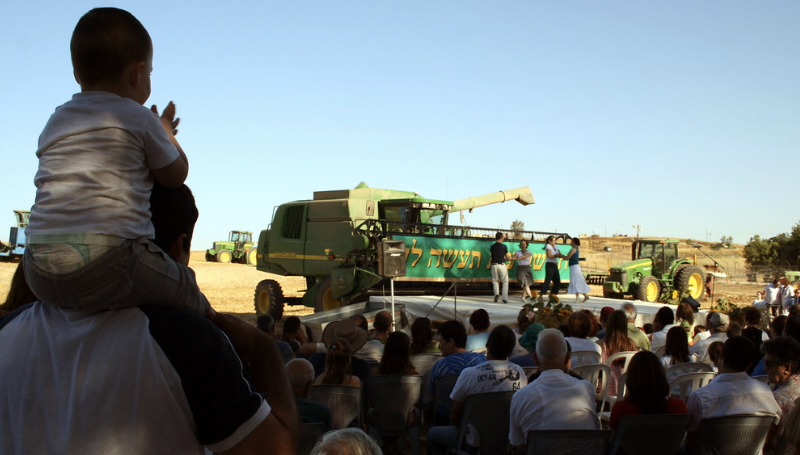Shmuel Lubin
The Lehrhaus, June 6, 2019
When it comes to the holiday of Shavuot, few questions are as famous as the one posed by Magen Avraham (494:1) on the problem of associating the holiday with the date of the Sinai revelation, the giving of the Torah. Based on his reading of a talmudic discussion in Shabbat (86b), the author of Magen Avraham, R. Avraham Gombiner, believes that the accepted opinion is that historically, the giving of the Torah at Mount Sinai occurred not on the holiday of Shavuot, which is the sixth day of the third month (Sivan), but on the seventh day. Even more troublingly, if we accept both Talmudic statements in that section that the historic Exodus from Egypt occurred on a Wednesday night, yet “all agree that [the Torah] was given on Shabbat,” then no matter what the date was the Torah must have been given fifty-one days after the first of Pesach, instead of the fifty days between Pesach and Shavuot mandated by the counting of the Omer. Thus, whether we are following the calendar date or counting a set amount of days from Pesach, the holiday of Shavuot does not coincide with the giving of the Torah.
Solutions to this double-question can be found in sources as varied as the philosophical sermons of R. Jacob Anatoli, (predating Magen Avraham by several centuries)[1] to the halakhic commentary of R. Yonatan Eybeschütz on the laws of menstrual purity.[2] Like the question of R. Yosef Karo regarding the eight days of Chanukah, this problem raised by R. Avraham Gombiner has spawned enough responses to fill an entire book.[3] Instead of focusing on the issue of the date of Shavuot, however, I would like to highlight what seems to me an even more glaring problem, which is side-stepped by the comment of Magen Avraham: why is Shavuot associated with the giving of the Torah at all? The difficulty of determining the date of the Sinai revelation only underscores the Torah’s mysterious silence in making any connection between the giving of the Torah and the holiday of Shavuot.
Shavuot is unique among the shalosh regalim in its biblical presentation: although Pesach and Sukkot are linked to the annual agricultural cycle, they also serve as monuments to events in Israel’s historical origins. The holiday of Shavuot, however, is described purely as a celebration of the harvest, and unlike the other holidays, is not said to commemorate any historical event. Yet, contemporary celebrations of the holiday of Shavuot–from the prayer book’s designating it as “zeman mattan torateinu” [the time of the giving of our Torah] to the recent but widespread custom for communities to engage in late-night Torah study–center around a theme which is entirely absent from the Torah’s discussion of the holiday, and is not even mentioned explicitly in rabbinic literature until the Talmud (Pesahim 68b). The gap between the Torah’s focus and today’s practices presents us with a twofold question: firstly, why would the all-important date of the Sinai revelation, “the day on which you stood before Hashem your God at Horeb” about which the Torah says to “guard yourself well lest you forget” (Deuteronomy 4:9-10) not be commemorated through a yearly holiday? Second, even assuming that this event really did happen on the date of Shavuot, what motivated the rabbis to celebrate it as such when the Torah itself does not? …SOURCE


